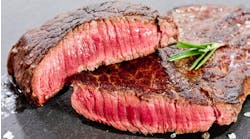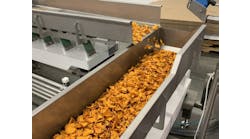After two presumptive positive tests for bovine spongiform encephalopathy (BSE or mad cow disease) turned up in June, both cases turned out to be negative upon further examination.USDA’s National Veterinary Services Laboratories (NVSL) in Ames, Iowa, in early July confirmed that the inconclusive screening test sample reported on June 29 tested negative for BSE upon confirmatory testing. “NVSL used the world-recognized gold-standard test for BSE, the immunohistochemistry test, to confirm this finding," reported John Clifford, deputy administrator for USDA’s Animal and Plant Health Inspection Service (APHIS).
Nevertheless, USDA and the Dept. of Health and Human Services in July also announced three new actions to strengthen safeguards against the agent that causes BSE. The three documents include:
- A joint notice from APHIS, USDA’s Food Safety & Inspection Service and the Food and Drug Administration (FDA) that asks for public comment on additional preventive actions that are being considered concerning BSE;
- An interim final FDA rule that prohibits the use of certain cattle-derived materials in human food (including dietary supplements) and cosmetics;
- A proposed FDA rule on recordkeeping requirements for the interim final rule relating to this ban.

